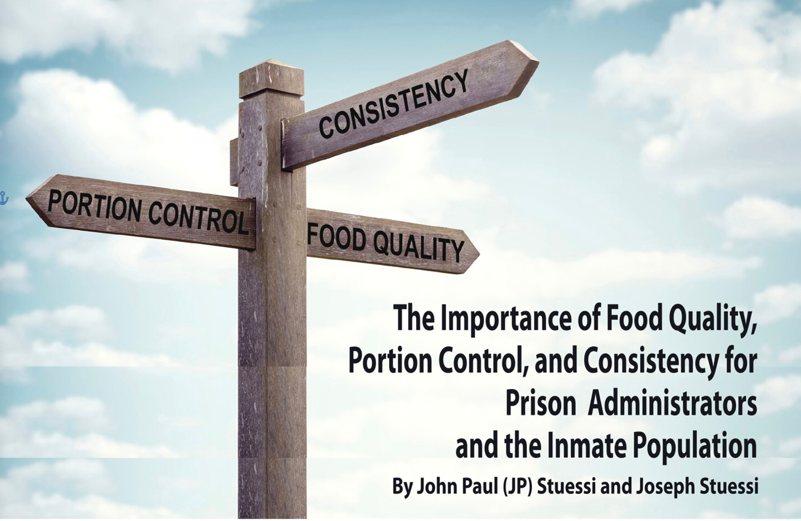Providing food service to state and federal prisons has a variety of challenges. Mealtime and prison food quality, in general, play a crucial role in prison life. Not just for the apparent purpose of “sustenance” but, if not more important, the type of food, quality of food, and consistency of food – meaning, portion size control are critical, if not subliminally important.
These issues related to food play outsized roles in the psyche of prisoners and, more broadly, the daily lives of the inmate population. This article will cover the importance of these nuanced matters and the genuine ramifications of suppliers’ and vendors’ unfamiliarity with meeting, or more importantly, not meeting, these critical fine points of “food standards” and their impact on prison system operations, prison food service administrators, and inmates.
Given the current prison conditions in the US, food consistency and quality can significantly impact inmate morale and general operations.
Food “Portion Size” Control and Consistency
Ensuring that all food items for prison food service are consistent in portion size and color consistency is essential. If food items/products delivered to prison lack portion size consistency, general product uniformity, and color consistency, these issues could result in delivery rejection. This matter in and of itself wreaks havoc on prison operations.
A “rejection” means a menu item must be substituted or canceled. In either case, this creates internal turmoil. Moreover, to resolve this problem, it is incumbent on the supplier to provide a make-good order, which may not be possible. And if possible, the goods/product(s) might not be readily available. If so, it could take [much] longer than expected for a new delivery to arrive, adding further complications and disruptions to schedules and systems. None of these scenarios bode well for prison officials, prison food service administrators, or prisoners.
Don’t Mess with the Menus
Prison facilities function off of menus. When a vendor/supplier’s product does not comply with or conform to these types of specifications, as noted, it will significantly disrupt food service operations. Meals may have to be modified quickly, leading to internal supply and food preparation problems for other foods and planned menu schedules.
Issues such as these are not uncommon and create undue and unnecessary pressure on the entire internal prison supply chain, disrupt kitchen operations, and impact not just inmate workers who staff food/kitchen operations but ultimately, can, and often do, filter into the general prison population psyche at large.
“Consistency” and “Dependability” are Critical to Prisoner Stasis, Safety, and Morale
Regarding food service for the prison systems, dependability and consistency are paramount to ensure smooth operations. As benign as these various issues may seem, awareness of such matters by prison administrators is essential.
Product inconsistency (portion control), food quality, and inconsistent color can create significant problems within prison walls. Issues such as these are known to produce considerable disruption; fights can erupt and even develop into riots. Further, occasionally inmates have the ability and right to submit complaints to the state health department, which may result in extensive problems for food service administrators.
“Food Issues” Antagonize Inmates – Avoid Problems where Possible
As stated earlier, “food in prison” is a focal point of prisoners’ mentality. Anything that can antagonize and disturb inmate stasis and morale is problematic. Efforts should be made to avoid issues such as those discussed, which are avoidable, provided prison officials work with vendors and suppliers who have a demonstrable track record and history not only in the food industry but, more specifically, suppliers who are familiar with the very particular nuances of working with both State and Federal prison systems, its guidelines, and the bidding process, which is not necessarily easy to navigate. Assuring consistent prison food quality means it’s one less area of concern about which prison officials need to worry.
Short and Long Terms Consequences of Dealing with an Unreliable Food Vendor
To eliminate the serious problematic issues discussed above, Prison Administrators should reconsider where their prison gets its food. Seek out other vendors/suppliers who have experience working with State and Federal Prisons and who, understand the nuances and challenges of supplying food to prisons, and have a hands-on working familiarity with food specs and the bidding process working with government entities.

